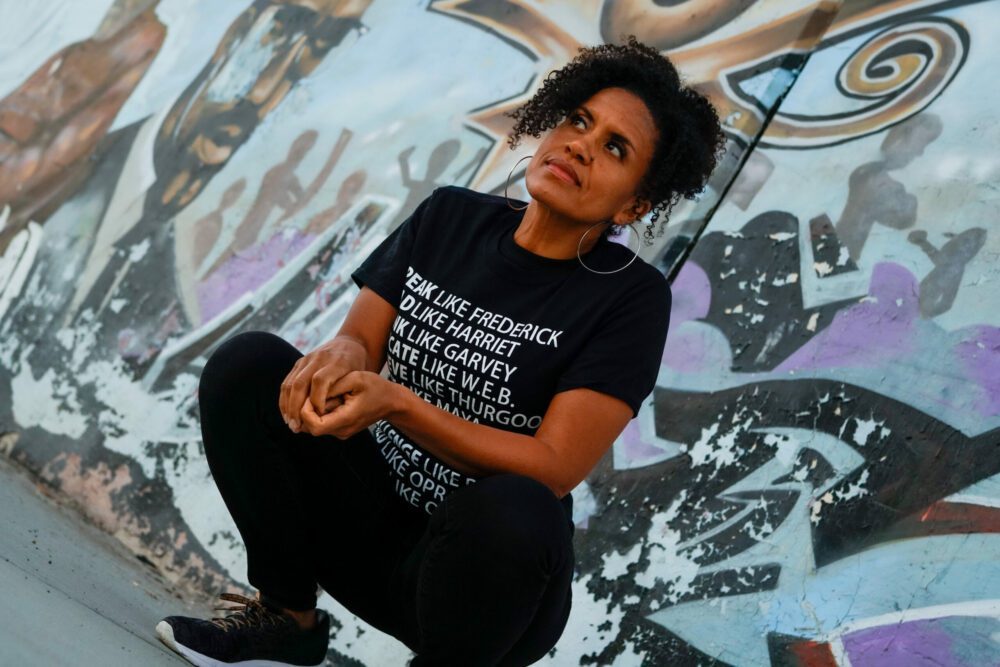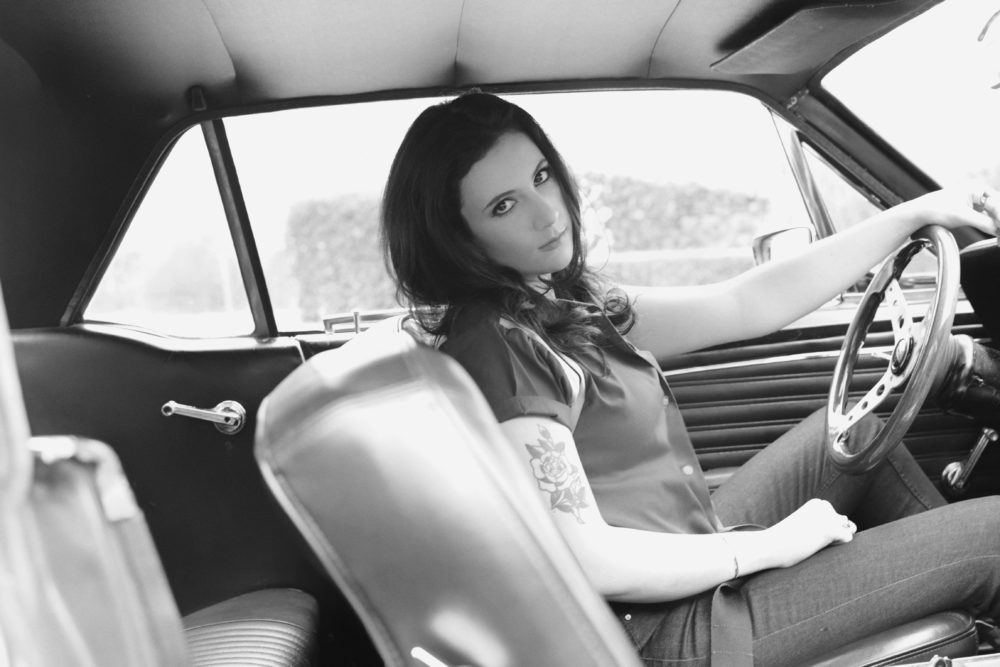Monique DeBose Inspires Change with “More” and “Rally Call”


Singer, writer and activist Monique DeBose utilizes her rich vocals and poetic talent to create anthems for all of us to live and be inspired by. Not one for creating “bubblegum pop” regardless of how much she enjoys it, DeBose has committed herself to harnessing her music in order to help create a world in which people better understand each other and create real change. “A lot of times we think we’re supposed to be a certain way or we are only supposed to express certain things, but there’s other parts of us just as alive and just as important,” she says. “When we’re willing to acknowledge all the parts of ourselves, only then are we actually, truly free.”
Born in Los Angeles, to an Irish-American mother and African-American father, writing poetry was her way of creating her own world, one in which she could express herself. Since those formative years, her tenacity for writing has expanded into other ventures, as well as music. In 2018, DeBose released her one-woman show, Mulatto Math: Summing Up the Race Equation in America, which unpacked her experiences as a mixed-race woman struggling to fit into black-or-white racial binaries in the U.S. “My work really supports all of us, including me, to move from seeing in black and white to actually living in full color,” she explains. “I feel like the space available for all of who we are has been so narrowed that we’re squeezing ourselves… it’s a narrative that isn’t sustainable for any breathing, living creature.” With that in mind, DeBose’s latest singles, “More” and “Rally Call” look to widen the space our identities can inhabit.
On “More,” DeBose tackles the societal constraints of womanhood, using an upbeat jazz track packed with a variety of musical elements that convey her desire for more from life. Demonstrating her captivating vocals and range that perfectly compliment the jazz track, that desire is depicted in a positive light. DeBose chooses more not because she has so little but because she wants to add to what she’s already achieved, despite what society thinks she deserves. This sentiment is highlighted in the lyrics “I’m gonna take my ovaries off the shelf and be the woman that I know I am/Why live small?/That’s not my plan.”
“I have this curiosity about all the different roles women play and I wrote it to give myself a daily dose of ‘You can do this, be courageous,’” says DeBose. She wrote the song some 14 years ago, for the women who are told they are “too much,” which she explains is “a tool that people in power – and power can mean many things on different levels – often tell women or girls. Girls are meant to be seen not heard; you’ve got to be kind and respectful. It’s definitely better than before but I think it’s still a part of the culture – you have to look kept and beautiful to be desired.”
“Rally Call” takes on a very different tale with the same emphasis on empowerment and change. A powerful blues track from beginning to end, “Rally Call” conveys DeBose’s emotions as a woman of color even as it highlights the experiences of the Black community in a wider sense. Released on the 57th anniversary of his iconic “I Have a Dream” speech, DeBose echoes the words of Martin Luther King Jr. in unforgettable lyrics as the song increases in tempo and her pitch rises.
Inspired, in particular, by the deaths of Ahmaud Arbery, Breonna Taylor and George Floyd, and the resulting Black Lives Matter demonstrations, DeBose communicates anger and pain, stressing the fact that enough is enough. “I can only speak to my experience; to me it’s devastating, it’s heart wrenching, it puts me in a space of feeling powerless, of feeling like I don’t matter,” she says. “There was a scab for many of us in this country, that is racism, and then those three murders really peeled the whole scab off again and you have this wound that isn’t healing because we’re not dealing with it in a way that is geared towards healing. We were dealing with it in a way geared towards avoiding it and ignoring it and hoping it will go away.”
This element of avoidance and how it leads to an inhumane cycle of brutality, murder, and backlash towards protests comes across in the song’s powerful music video. DeBose sings in front of a wall depicting African-American culture and history whilst images from slavery, the 1960s Civil Rights movement and modern day images of Black Lives Matter marches are woven throughout. “For people of color and people who have been oppressed, this song is really an anthem to encourage and inspire you to no longer make yourself small so you can fit into a narrative,” says DeBose. “Regarding people who don’t identify as people of color or don’t have that experience of being oppressed, it’s an opportunity to really let it wash over you. I really want people to pay attention and imagine that the world does not exist only for your benefit or for you and consider that if we are making space for everyone at the table, the table would just be that much more nourishing, creative and exciting.”
To further emphasize the message of both tracks, DeBose has created the movements #ICHOOSEMORE and #JOINTHERALLYCALL; she partnered with Color of Change on their 15 year anniversary to promote the latter. This determination to keep the message going is indicative of the thought and care that DeBose puts into her work – not just making the music, but connecting with people and bringing about vital conversations that will lead to vital change. “Music is so powerful. When people set intention with the words or instrumentation it’s definitely going to filter in because it’s just something we know,” she says. “It’s a wonderful, powerful source of shift.”
The power of owning all the parts of ourselves, good and bad, attractive and unattractive, is a thread that runs throughout everything that the singer, writer, activist does. “Every song I’ve written, I could make a movement behind, because it really does come from a place of owning yourself and expressing yourself authentically,” she says. For DeBose, the message-within-the-message is the importance of not letting anything or anyone define you. With that in mind, she plans to take her work to the next level in 2021 by creating her own podcast, putting her award-winning play Mulatto Math online, and recording a full length album that will include “More” and “Rally Call.”
If 2020 has demonstrated anything, it’s that our lives are not concrete and that they can change faster than we realize. Monique DeBose has utilized that fact to remind her listeners of the work still to be done for both women and communities of color – and that change is not only possible, but within our reach.
Follow Monique DeBose on Facebook and Instagram for ongoing updates.




